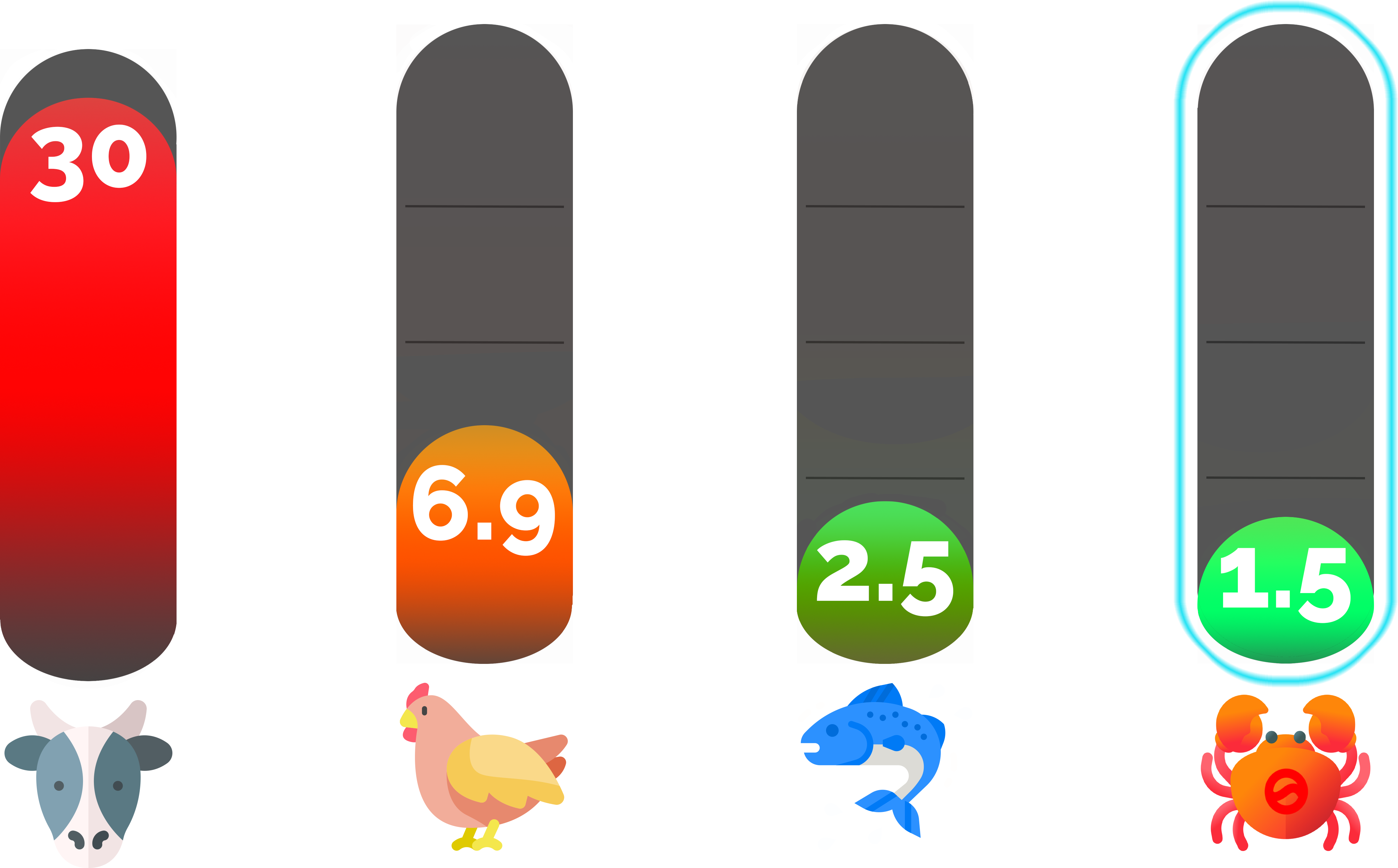Our Obligation to Nature
We reduce the resource burden to our planet and foster a sustainable future with record low Co2e emissions and efficient feeding, while maintaining the highest standards of animal well-being.
We reduce the resource burden to our planet and foster a sustainable future with record low Co2e emissions and efficient feeding, while maintaining the highest standards of animal well-being.
We measure environmental burden on a Co2 equivalent basis. This includes other greenhouse gases such as methane and nitrous oxide and is therefore a more comprehensive measure of climate impact.

Decapod crab has by far the lowest carbon footprint of any farmed meats — beating beef fifteenfold and chicken fivefold. Even our closest competitor, salmon, still has 67% higher emissions.
Feeding the world sustainability requires efficient feeding. By working to reduce the amount of feed required to produce 1 kilogram of edible meat, we are saving our planet's scarce resources.

Twelve kilos of feed goes into every kilo of beef

Three kilos of feed goes into every kilo of chicken

One and a half kilos of feed goes into every kilo of salmon

Just over one kilo feed goes into every kilo of Decapod crab
If every household switched out one meat meal a week with crab, then global carbon emissions would be reduced by a bazillion tonnes annually.